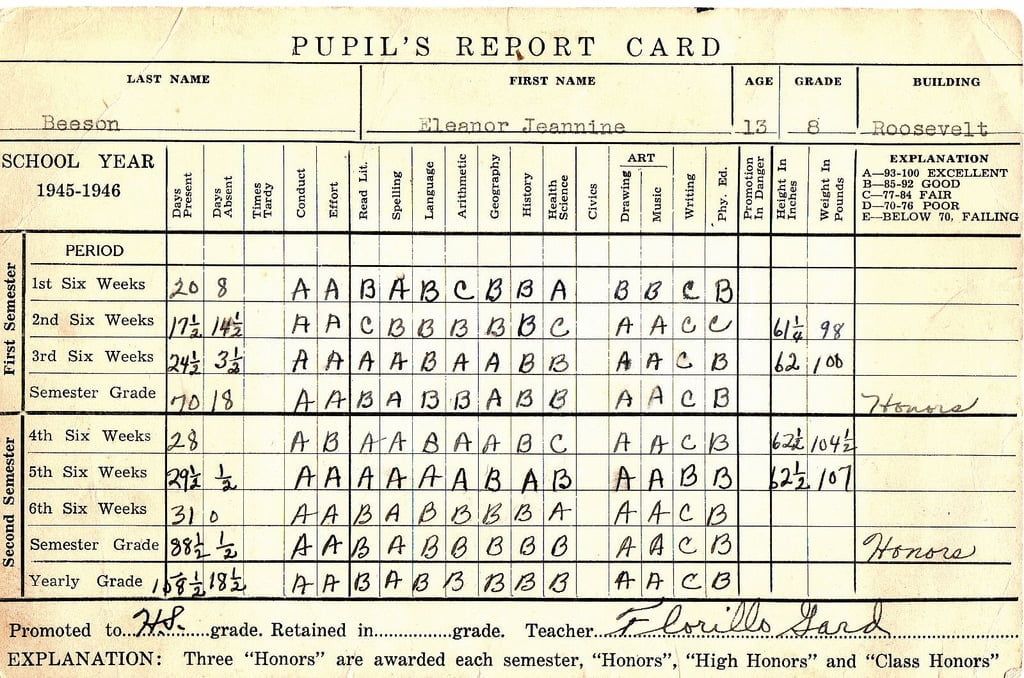Remember when we were in school and our teachers told us that if we misbehaved it would go on our “permanent record?” Remember how relieved we were when we learned that there was no such thing? That was a great moment.
Unfortunately, it wasn’t totally correct. Putting aside law enforcement, and the fact that anything you’ve ever written on the Internet will likely be there forever, there is a permanent record that affects many aspects of our life. I refer to, of course, your credit report.
Table of Contents
What’s a credit report?
The credit report is a list of your credit and loan accounts, including your history with those accounts. If you opened an account in May 2005, it will be on the report. If you were late on a payment in September 2008, it will be on the report.
This report is used by banks and other agencies to determine credit worthiness. But even if you eschew credit cards, this report may be accessed by landlords and even potential employers. It behooves you to at least know what your credit report says.
There are three major agencies in the US that provide credit reports: TransUnion, Equifax, and Experian. These companies exist seemingly to hold on to our financial histories (and then sell them to others). Obviously, I’m a bit uncomfortable with this. I don’t know why these three companies have this kind of power over us.
I’m also a bit divided on the fact that there are three of them. On one hand, it’s nice that all the knowledge and power aren’t concentrated in one company. On the other hand, it means you get to do everything three times.
Error check
The primary reason to get a credit report is to check for errors. If the agency maintains that you missed a payment years ago, and you most surely did not, then you want to let them know.
Errors can be disputed, but that’s it. You can’t change anything on your credit report unless it’s incorrect. There are agencies that claim to help you “clean up” your credit report; I don’t know what they’re doing, because you can’t remove anything that’s accurate. If something is wrong, you can let them know and change it. Otherwise, you have to own your actions. If you stopped paying your mortgage for six months without working out a payment plan, it will be on the report. And you can’t remove that.
Get your credit report for free, really
Getting access to your credit report is easier today than it used to be. Until about 2004, as far as I can tell, you had to pay to get your credit reports. But then the rules changed, and a federal site launched called annualcreditreport.com which allows anyone to get their credit report from any of the three credit agencies. You can do this once per year, for free.
Now, because this is America, and private industry can’t stand to have information freely given when they could sell it to us. So many sites have developed sites with confusingly similar names.
Have you ever seen those commercials that have that silly band singing songs about getting your credit information?
[youtube]https://www.youtube.com/watch?v=YzkBhfbwRkg[/youtube]
That sitet site they talk about is not a free site. When you go there, you see the following header:
If you don’t cancel your membership within the 7-day trial period*, you will be billed $14.99 for each month that you continue your membership.
Here are some other sites that are not annualcreditreport.com, and therefore, not free:
- freescoreonline.com
- freecreditreport.com
- creditscore.com
- ohhlalacredit.com
- nochargeforcredithere.com
- gimmecreditreport.com
- creditscorrrrre.com
- aintcharginnothinforyourcreditreport.com
Etc. There is only one site that is guaranteed to allow you free access to your credit report, and that is annualcreditreport.com.
(I sort of wish the Feds had come up with a better site name, but 2004 was a long time ago in Internet years. These days, it’d probably be credit.gov, or creditr.com, or reporty.co or any number of increasingly twee options.)
Report ≠ score
I should also add that the credit report is not the same thing as the credit score. The credit score (or at least, the primary vendor of such) is a different company from the credit reporting agencies, and doesn’t participate in this free access. So you can get your credit report for free, but not your score. That’s okay, though, as I think you probably care too much about your credit score anyway. But it’s easy to get “credit report” and “credit score” confused.
Once a year
You can get your reports from each agency once a year. Some recommend that you get one report from each agency on a staggered basis, so you could get a single credit report every four months. That seems a bit much for me, unless you have specific concerns. Once a year is fine. And that way you can do an immediate comparison between them.
The point here is to keep it simple. On one hand, these companies have a tremendous amount of information about your financial history. On the other hand, most of the time, it doesn’t matter what these reports say. You should still pay what you owe, if you owe anything, and let the rest take care of itself.
So spend a short amount of time once a year or so keeping up with they know about you. Make sure that it’s correct. And then stop worrying about it.
But enough about me. How often do you look at your credit report?

